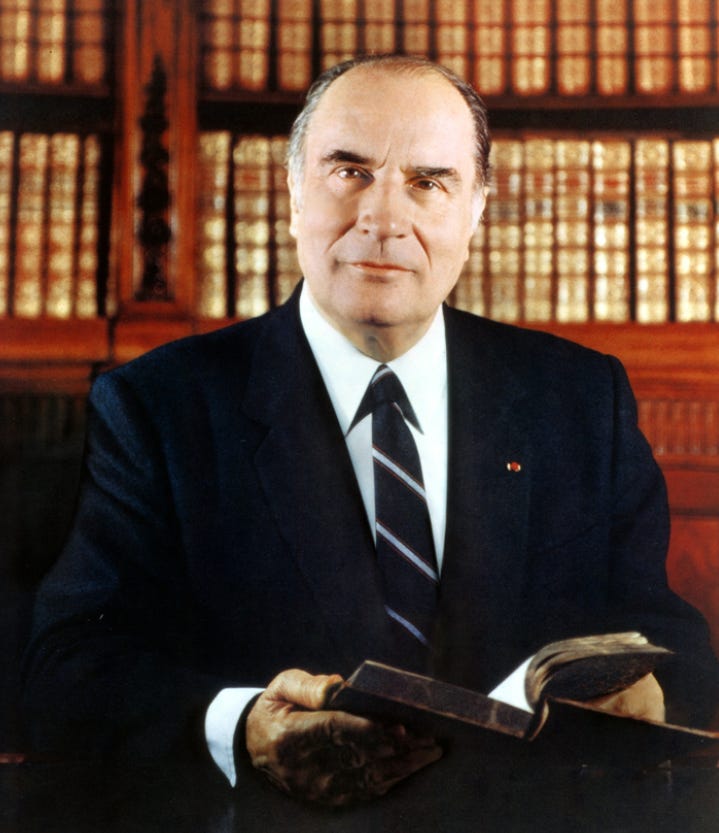"A man loses contact with reality if he is not surrounded by his books."
François Mitterrand
François Mitterrand, born on October 26, 1916, was a significant figure in French politics, serving as the President of France from 1981 to 1995. His presidency is notable not only for its length—making him the longest-serving French president—but also for the profound changes he brought to France during his time in office.
A quote often attributed to Mitterrand that reflects his complex political philosophy is: "A man loses contact with reality if he is not surrounded by his books." This statement reveals Mitterrand's deep intellectualism and his belief in the power of knowledge and culture. Known as a voracious reader and a man of letters, Mitterrand surrounded himself with books and was influenced by a wide range of literary and philosophical works throughout his life.
Mitterrand's career was marked by his ability to navigate the tumultuous political landscape of 20th-century France. He was involved in politics from a young age, having held various ministerial positions before ultimately becoming the leader of the Socialist Party. His election as president in 1981 marked a significant shift in French politics, as he was the first Socialist to hold the office since the establishment of the Fifth Republic in 1958.
During his presidency, Mitterrand implemented a range of socialist policies, including nationalizations of key industries and expanding social welfare programs. However, as the global economy shifted and France faced economic challenges, he adapted by embracing more market-oriented reforms, demonstrating his pragmatic approach to governance.
Mitterrand was also known for his cultural policies, which reflected his deep appreciation for the arts and literature. He launched the "Grands Travaux" (Great Works) program, which included the construction of iconic landmarks like the Louvre Pyramid and the Bibliothèque nationale de France, both of which have left a lasting impact on the cultural landscape of Paris.
His quote about books also highlights the importance he placed on remaining intellectually engaged and connected to broader cultural and historical contexts, even while navigating the often harsh realities of political life. Mitterrand believed that a leader must be informed and enlightened by history and the humanities to govern effectively and wisely.
Mitterrand's legacy is a complex one, characterized by both his successes in modernizing France and controversies, including his secret wartime activities and personal life. Yet, his intellectualism and his contribution to France’s political and cultural development have cemented his place as one of the most influential French leaders of the 20th century. His belief in the power of knowledge, as reflected in his quote, underscores the importance he placed on being well-read and informed in leadership, a trait that he carried throughout his long career.


